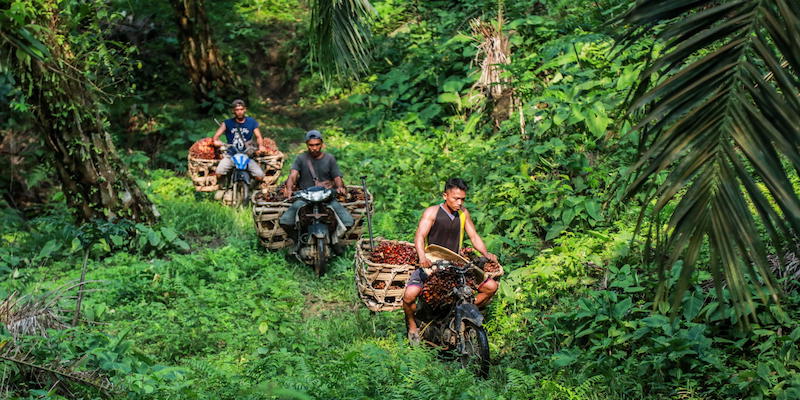On Friday, Indonesian President Joko Widodo announced a ban on the export of palm oil produced in Indonesia to ensure the availability of food and oil for cooking in the country, in the face of the scarcity of raw materials already underway for some months and aggravated by the consequences of the war in Ukraine. Palm oil is an extremely versatile and economical vegetable fat, widely used in the food and cosmetic sectors. Indonesia is the main producer: the announcement of the export ban has already begun to increase the cost of other vegetable oils and it is estimated that it could have major consequences on the price of many foods in various countries of the world.
Already at the beginning of the year, Indonesia, a country of about 275 million inhabitants, had restricted exports and had put a cap on the sale of palm oil to residents due to the deficiency of oil to cook. The invasion of Russia also compromised the cultivation of sunflowers and the production of sunflower oil in Ukraine, the country that exported the most to all over the world, causing an increase in the demand and costs of other types of vegetable oils, such as soybean oils. In recent months, the price of raw palm oil in Indonesia increased up to 40 percent, further exacerbating the inflation problem.
In his ad, Widodo he said that the ban serves to ensure the availability of food products in the country and to ensure that stocks of cooking oil on the internal market are “abundant and accessible” for all. The ban will go into effect on Thursday 28 April and at the moment it is not known how long it will last.
Many countries depend on Indonesia for their stocks of palm oil, a fat used for both frying and industrial baking, but also for the production of biofuels and for shampoos, soaps and detergents, as it facilitates the production of the foam. About 60 percent of all palm oil exported globally comes from Indonesia, and the leading Indonesian producer produces a third of all exported vegetable oil in the world. 80 percent of the palm oil used in Pakistan and Bangladesh comes from Indonesia, which also supplies half of all that used in India.
For these various reasons economists e analysts believe that the ban on exporting it will cause a sharp increase in the costs of other vegetable oils and will have major repercussions in many parts of the world, starting with countries that are already at risk of suffering a serious food crisis due to crop shortages and rising prices of grain and fertilizers as a result of the war in Ukraine. According to Rasheed JanMohd, head of the Pakistani Association of Food Processing Oils (PEORA), “all countries will suffer».
As explained to Al Jazeera Trinh Nguyen, economist of the Natixis investment bank and expert on Southeast Asia, the ban will have a major impact also on Malaysia, which is the second largest palm oil producing country after Indonesia.
In recent times, Malaysia was already struggling with labor shortages due to restrictions imposed by the coronavirus pandemic, which prevented many migrants who usually worked on plantations from arriving in the country. According to Nguyen, Malaysian producers will now be able to export their products at higher prices, but they will hardly be able to meet the large demand with so few resources.
– Read also: Finding an alternative to sunflower oil is complicated
–


